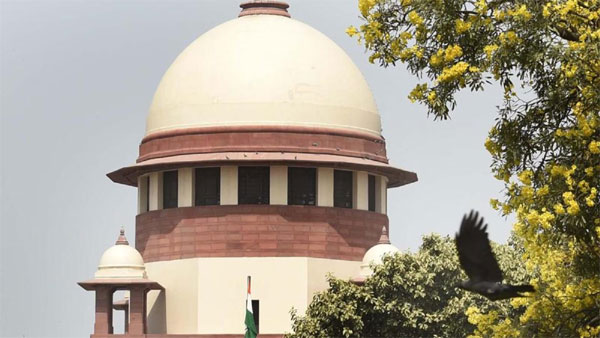Daijiworld Media Network - New Delhi
New Delhi, Sep 14: In a landmark judgment aimed at restoring dignity to India’s most marginalised, the Supreme Court has issued comprehensive directives to transform beggars’ homes into humane, rehabilitative spaces aligned with the constitutional right to life and dignity under Article 21.
The verdict came in response to a case involving the tragic deaths of several inmates at Delhi’s Lampur Beggars’ Home due to contaminated drinking water. A bench of Justices J.B. Pardiwala and R. Mahadevan sharply criticised the punitive legacy of such institutions and called for a "paradigm shift" in their operation and purpose.

“Beggars’ homes cannot be quasi-penal facilities. They must become spaces of care, recovery, and reintegration — not incarceration,” observed the bench. “Overcrowding, unhygienic conditions, involuntary confinement, or denial of medical care isn’t just policy failure — it’s a constitutional violation.”
From Punishment to Protection
Calling for a complete overhaul of how these homes are run, the bench emphasised that the term "home" implies "safety, dignity, and belonging" — not prison-like environments. The court also condemned colonial-era anti-begging laws for criminalising poverty rather than addressing it through support and rehabilitation.
Key Directives Issued:
The court laid out a detailed set of mandatory reforms, to be implemented nationwide within six months:
?? Medical and Sanitation
• Mandatory health screening within 24 hours of admission
• Monthly check-ups for all residents
• Strict hygiene protocols, including potable water, functional toilets, and pest control
• Disease surveillance systems to prevent outbreaks
?? Infrastructure and Nutrition
• Independent audits every two years
• Prohibition of overcrowding — occupancy must stay within legal limits
• Access to safe housing, ventilation, and open spaces
• Appointment of a qualified dietician to ensure nutritious meals
• Standard dietary protocols to be implemented uniformly
?? Rehabilitation and Legal Aid
• Establishment of skill development centres in each facility
• Collaborations with NGOs and private institutions for training
• Regular assessment of inmates’ progress toward rehabilitation
• Inmates must be informed of their legal rights in simple, accessible language
• Panel lawyers from State Legal Services Authorities to visit each facility at least once every three months
?? Women and Children
• Separate, secure facilities for women and children
• Child beggars must be placed in child welfare institutions, not beggars’ homes
?? Oversight and Accountability
• Monitoring committees to publish annual reports and health incident data
• In case of deaths due to negligence or lack of care:
o Compensation must be paid to the next of kin
o Departmental or criminal action must be initiated against responsible officials
Implementation Timeline
The Supreme Court has directed:
• The Union Ministry of Social Justice and Empowerment to frame model guidelines within three months
• Full state and UT-level implementation within six months
• The apex court registry to circulate the judgment to all Chief Secretaries and the Union Ministry for immediate action
“Beggars’ homes must become centres of social justice, not social exclusion,” the court asserted, marking a historic step toward humanising state-run shelters for the destitute.